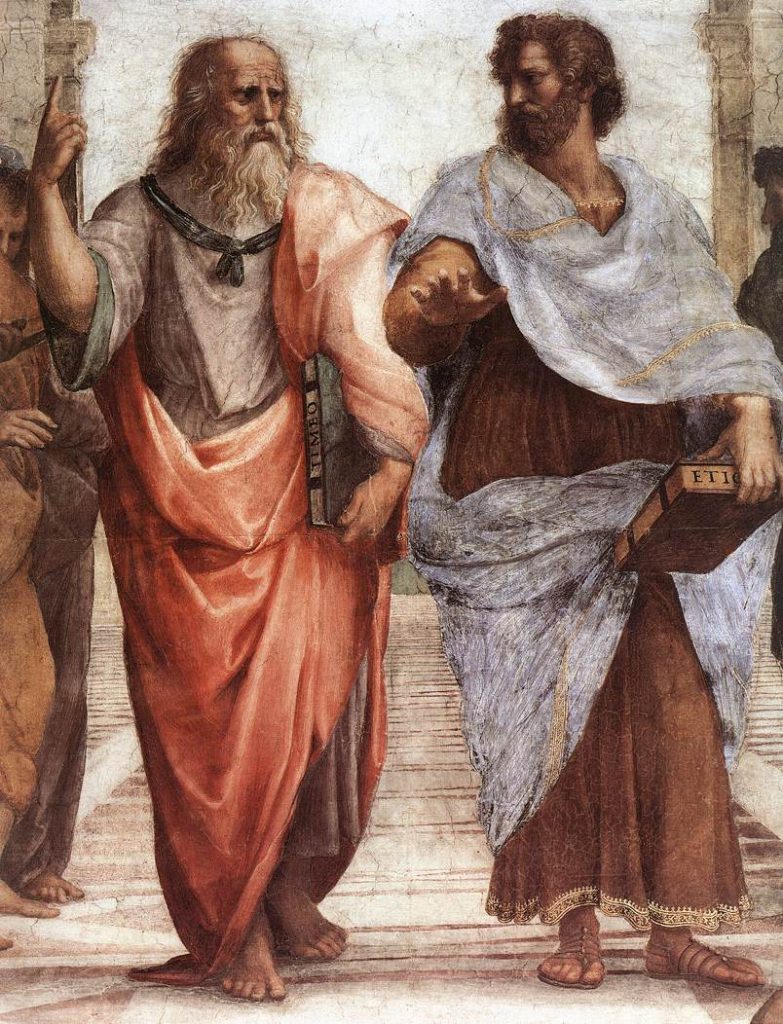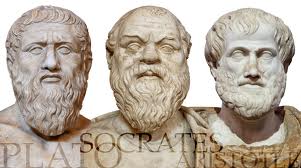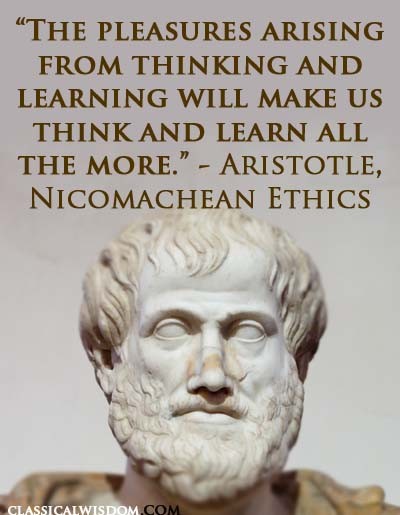By Brendan M.P. Heard, contributing writer, Classical Wisdom
Ethics: the ambitious discipline of determining nothing less than what is good and what is bad, or the analysis and administration of the obligation of moral duty.
One might say it is the judicial branch of philosophy, or the point at which the philosopher, after establishing whether or not a thing exists, and whether it should be considered good or bad, and whether or not we are equipped to sufficiently understand it – tries to establish how we should react to it. But the road to prudent action is not to be undertaken without firmly establishing what is best, and so ethical inquiry becomes the penultimate stage of philosophical determination, the final self-evaluation before the plunge into manifest action. Invariably in classical thought, with the exception of the Sophists, this discussion leads to the topic of virtue, but virtue alone is only an aspect of the mechanics of ethics.
“Remember our words, then, and whatever is your aim let virtue be the condition of the attainment of your aim, and know that without this all possessions and pursuits are dishonourable and evil.”
– Plato, Menexenus, NB: Here Plato is repeating the oration of Aspasia the Milesian, one of his teachers, The Dialogues of Plato (ed. 1871) translated by Benjamin Jowett (1817-1893)

Plato and Aristotle
But what then is the core guiding principle of classical ethical thinking? It is the same core principle found permeating the entirety of classical accomplishment. It is the key to classical thought.
The word ‘ethics’ derives from the Greek ēthikós, itself derived from the word êthos meaning character (to us ethos suggests ideology). An individual’s ethics is their moral nature, manifest in a personal code of conduct regarding their interactions with others” since not everything that occurs to us is ethical or morally related. Ethics may in a sense supersede our intuitive reactions, and in fact ideally does so.
For instance: you are asked to honestly evaluate a co-worker. You know that being dishonest would give you a work-place (and thereby financial) advantage; however the individual in question is hard-working and loyal. The animal impulse is almost always for material or personal gain. The higher internal judiciary of personal ethics determines your final action. That internal judge, whom we must call virtue, will punish you with guilt, regret, self-loathing, and fear of retribution if you choose the unconsidered path. The animal path.

For the Greeks, this was largely the task of ethical thought: to determine what is, in fact, virtuous, or what virtue consists of and how we might best attain it. But there are deep subjective waters to tread in establishing an ethic, and in properly formulating a wise response to the moral paradoxes and contrary world views one encounters in daily life.
All true philosophy involves moral philosophizing, or systematizing concepts of right and wrong and establishing conduct based on those systems. Even relativist philosophies have to make the choice to be relativist (which is to them the correct view) – thus rejecting objective concepts (wrong). Even in nihilist or anarchist ethics, there is a rock solid rule about not making rules. Thus, inescapably, ethics is the practical summation of philosophical concepts of right and wrong.
Obviously each classical philosophical school has its own ethical canon. However, there is a linking concept between each, the aforementioned key to classical thought. This key to classical ethics, as espoused by the great Greek originators (Plato and Aristotle) would be the very same as their answer to nearly any conceptual question of antiquity: Balance.
This might also be understood as: moderation, proportion, and harmony.

“If it is thus, then, that every art does its work well- by looking to the intermediate and judging its works by this standard (so that we often say of good works of art that it is not possible either to take away or to add anything, implying that excess and defect destroy the goodness of works of art, while the mean preserves it; and good artists, as we say, look to this in their work), and if, further, virtue is more exact and better than any art, as nature also is, then virtue must have the quality of aiming at the intermediate. I mean moral virtue; for it is this that is concerned with passions and actions, and in these there is excess, defect, and the intermediate.”
Aristotle, Nicomachean Ethics
But how does that work in ethics? There are many treatises on the practice of virtue, as it pertains to the path to happiness, and within these the wisest claim the path to goodness begins with cultivating the virtues.










No comments
Trackbacks
Our apologies, you must be logged in to post a comment.